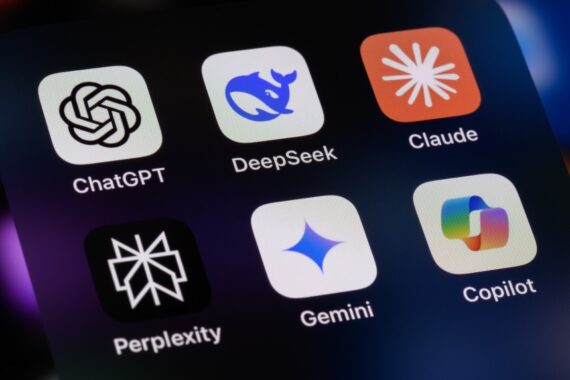ChatGPT could free up GP consultation time by summarising notes

AI tool ChatGPT may be able to free up GP time during a patient consultation by providing a quick summary of recent medical notes, researchers have found.
Testing the theory on simulated records, GP researchers found ChatGPT was able to do sum up the patient’s history more quickly and with similar accuracy to doctors.
If validated in real medical records, it could be a way for GPs to spend more time in a consultation speaking to a patient rather than having to skim read what has happened in previous consultations, the team said.
The GP researchers from Imperial College London created 70 simulated patient records before asking a group of clinicians and ChatGPT to do a summary of each one.
Doctors took 7 minutes to summarise the 2-years’ worth of records for each patient whereas ChatGPT was able to do this in 16 seconds.
AI achieved a similar level of accuracy and greater consistency, the study showed.
The doctor-generated summaries were scored more highly by independent clinicians particularly when it came to having the most relevant information and ignoring things that were irrelevant.
But the AI summaries were rated as more useful and easy to understand by the clinicians reading them as well as more likely to contain language that could be shared with patients.
Writing in the journal JAMIA Open, the researchers said reviewing patient records before an appointment could eat into a lot of the allotted consultation time and clinicians may also miss vital information when they were quickly trying to take in the information.
In addition to freeing up time in a consultation, AI-powered summaries ‘could improve efficiency and safety in general practice’ through GPs having more time to focus on the patient in front of them, they said.
Study lead Dr Lara Shemtob, a GP in London and research fellow at Imperial College London, said it could be difficult to get your head around a patient’s medical history before they came into a consultation, especially when it came to older people with multiple conditions.
A lot of the relevant detail has been written in the free text box and the only way to take it in is to try and trawl through it, she explained.
‘This work was all about trying to understand how helpful is generative AI in summarising that free text into something that’s useful to a human clinician,’ she said.
The study was not done on live patient records and that is something that would have to be carefully tested, Dr Shemtob said. But it also shows the usefulness of simulated patient records in testing these ideas where accuracy would be vital, she added.
Because it is evolving all the time, ChatGPT may have even improved its ability to do these types of summaries since they did the study, she said.
But Dr Shemtob admits that it will be difficult to get this sort of work embedded within NHS systems because caution will be needed.
‘The regulatory environment is so important and hard to get right, particularly for GPs, who are often functioning as small businesses that won’t have a cyber security expert so implementation will be hard, and rightly so.’
But with practices under increasing pressure, tools like this could be part of the answer, she noted.
‘It’s a way off but this is one step towards a possible solution.’
The UK medicines regulator has urged GP practices to report all adverse incidents and inaccuracies with artificial intelligence (AI) tools used in clinical practice to its Yellow Card Scheme.
The Government’s 10-year plan for the NHS said it would support the rollout of AI transcribing tools in GP practices over the next two years. The plan used figures from ‘local trials’ that showed ambient voice technology (AVT) saved one to two minutes per GP appointment.
Portfolio careers
What is the right portfolio career for you?

Related Articles
READERS' COMMENTS [1]
Please note, only GPs are permitted to add comments to articles












Lol, errors are parts of medicine practice in all it’s disciplines, with a aging population and less and less acceptance of errors (99.999999% are honest oversights mistakes), nothing can be done about deteriorating care, plus people upto my decade and till the sixties (born) have sucked the profession dry with their greed. AI is going to compound everything exponentially, and then doctors will be asked to do the corrections, some people are very clever, again from my generations, they are minting money though enroute to the never never land.